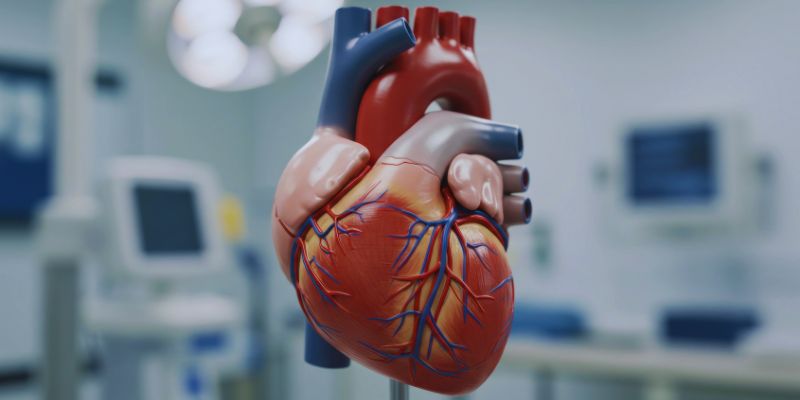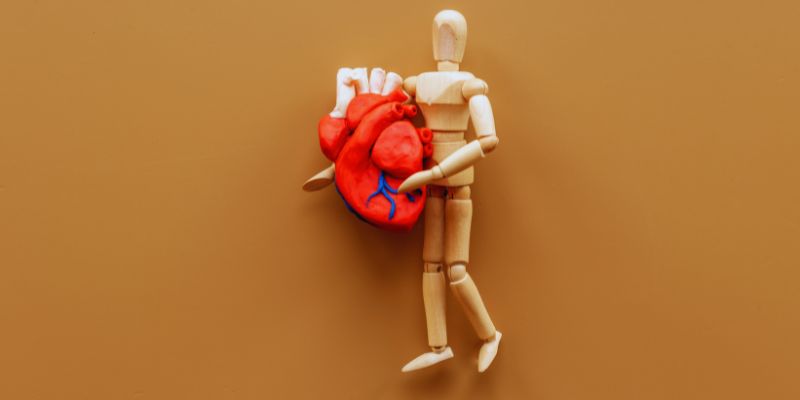Heart disease is among the most often occurring medical conditions worldwide. It impacts millions of individuals. It can cause major problems, including heart attacks and perhaps death. Fortunately, many heart-related conditions are preventable. All you need is knowledge of the correct actions. Understanding heart disease helps you take better care of your body and plan for a healthier future.
This guide will walk you through the basics—what heart disease is, what causes it, and how it can be managed. You'll also discover practical steps for lowering your risk. Whether you want to protect your health or support a loved one, understanding heart disease can help you make smart choices for a stronger heart and a healthier future.

What Is Heart Disease?
The broad term for numerous disorders that compromise heart function is heart disease. The most often occurring kind is coronary artery disease, in which plaque development blocks or reduces blood flow to the heart. Other conditions include arrhythmias, abnormal heartbeats; heart valve disease, which influences valve opening and closing; and heart failure, in which the heart cannot pump blood adequately. While some people have heart defects from birth, others acquire heart disease from bad lifestyle choices, high blood pressure, diabetes, smoking, or obesity.
Usually sluggish in development, heart disease often goes unnoticed by many until it becomes severe. Major health issues follow from oxygen and nutrients not reaching the organs when the heart cannot pump effectively. Though it's a dangerous illness, with the correct treatment, it can be controlled. Early therapy and identification are vital. Heart disease can be avoided or controlled with knowledge of the symptoms and sensible lifestyle modifications.
Common Types of Heart Disease
There are several different types of heart disease. Everybody affects the heart differently. The most often occurring forms are these:
- Coronary artery disease (CAD): This type is often occurring. It results from plaque accumulating within the arteries. The arteries narrow, therefore restricting the blood supply to the heart. Chest discomfort, dyspnea, or a heart attack can all follow from this.
- Heart failure: Heart failure is when the heart cannot pump blood as it should. The lungs and body might become congested with blood and fluid. It makes one weary, dyspnea, and swell in the legs, ankles, or feet.
- Arrhythmias: An arrhythmia is a condition whereby your heart beats too quickly, slowly, or unevenly. Your chest is hammering or fluttering. While some arrhythmias are benign, others could induce fainting or other heart issues.
- Heart valve disease: Heart valves regulate blood flow. If a valve is broken, blood flow cannot be proper. It may induce edema, coughing, tiredness, and chest aches. While some valve problems are minor, others may require surgery to repair the damaged valve.
- Congenital heart defects: You inherit these heart issues. They influence the cardiac blood flow. Some flaws are minor and go without symptoms. Others are more severe and require ongoing treatment or surgery to safeguard heart health over time.

What Causes Heart Disease?
A combination of elements that compromise the heart and blood arteries results in heart disease. The most common cause is atherosclerosis—plaque accumulation in the arteries. It occurs when other compounds, including cholesterol and fat, adhere to arterial walls, constricting them and lowering blood flow. High blood pressure increases the heart's and arteries' strain, which increases the likelihood of damage. Since smoking reduces oxygen in circulation and damages blood vessels, it is a main contributor.
Diabetes affects blood sugar and generates inflammation, so raising the risk. Heart disease also affects those who are overweight, consume poor diets, and neglect exercise. Furthermore, damaging the heart is stress and too heavy ethanol consumption. Sometimes, heart disease runs in families due to inherited genes. Aging increases the risk since, with time, the heart weakens and arteries tighten. Often, several risk factors work together to cause heart disease.
How Is Heart Disease Diagnosed?
Depending on your symptoms and health background, several tests and assessments help detect heart disease. A physical check-up usually comes first, followed by questions about breathlessness, tiredness, or chest pain. They might evaluate your blood pressure, cholesterol, and blood sugar to hunt risk variables. An electrocardiogram (ECG or EKG) is often used to evaluate cardiac rhythm and identify abnormal beats.
You could see how your heart responds during physical exercise with a stress test. Imaging studies revealing the heart's size, structure, and function include echocardiograms, chest X-rays, or CT scans. Sometimes, one needs a coronary angiography to examine the arteries under X-rays and a specific dye. Blood testing can also point to indicators of inflammation or cardiac damage. Particularly if heart disease runs in your family, early diagnosis is crucial.
Treatment Options for Heart Disease
The kind and degree of the cardiac ailment determine the course of treatment. Treatment often begins with lifestyle changes like a healthy diet, regular exercise, quitting smoking, and managing stress. These actions help reduce symptoms and improve how well the heart works. Medications are widely used to regulate blood pressure, decrease cholesterol, prevent blood clots, and treat heart rhythm abnormalities. More severe situations could need procedures.
Using a tiny balloon and occasionally a stent to maintain arterial openness, angioplasty opens blocked arteries. Through bypass surgery, blood flow finds a fresh channel around clogged arteries. If heart valves are damaged, either replacement or repair of valves could be required. Devices, including pacemakers or defibrillators, can help regulate heartbeats in cases of heart failure. Ongoing care is essential to monitor progress and adjust treatment as needed.
Conclusion:
Though a major illness, heart disease can usually be avoided and controlled. Protection of your heart health depends on knowing the causes, symptoms, and available treatments. Choosing a healthy lifestyle lowers risks by eating healthily, doing physical activity, and avoiding destructive behaviors. Early diagnosis and advice from your doctor help to enhance results and quality of life. Particularly if you have a family history, regular visits are vital. Keeping educated and proactive will help you take charge of your heart health and lead a longer life. Your heart matters, so take good care of it every day.












